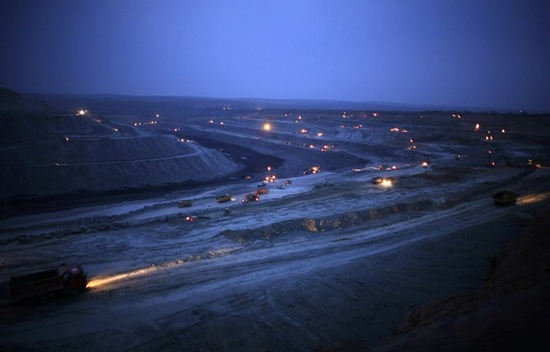《纽约时报》:中国的污染已经到了极限
上个星期,《纽约时报》刊出了长篇报道《中国的污染已经到了极限》(As China Roars, Pollution Reaches Deadly Extremes)。

原文的副标题是:"审视中国史无前例的环境危机带来的全球影响和政治挑战,以及全人类为之付出的代价。"(A series of articles and multimedia examining the human toll, global impact and political challenge of China's epic pollution crisis.)
我原想翻译全文,无奈报道太长,译了三分之一,还是不得不放弃。如果可以看懂英语,我推荐大家阅读原文,作为中国人,应该知道这些事情,而且报道的后半部分相当精彩。
除了触目惊心的事实,作者在文中还问了一个重要的问题:
**只要中国共产党想做,它什么都能做到,那么它为什么解决不了环境污染?**回答是:
For the Communist Party, the political calculus is daunting. Reining in economic growth to alleviate pollution may seem logical, but the country's authoritarian system is addicted to fast growth. Delivering prosperity placates the public, provides spoils for well-connected officials and forestalls demands for political change. A major slowdown could incite social unrest, alienate business interests and threaten the party's rule.
对于共产党来说,政治上的代价太大。降低经济增长速度,减轻环境污染,这是合乎逻辑的想法。但是,这个国家的政治当局追求经济增长速度已经上了瘾。只要经济保持繁荣,就可以减轻公众的不满,为官员提供腐败的土壤,遏制政治变革的呼声。如果经济增长速度显著放慢,就将引发社会不稳定,打击商业利益,威胁党的统治。还有:
China's authoritarian system has repeatedly proved its ability to suppress political threats to Communist Party rule. But its failure to realize its avowed goals of balancing economic growth and environmental protection is a sign that the country's environmental problems are at least partly systemic, many experts and some government officials say. China cannot go green, in other words, without political change.
中国的统治者已经反复证明,它能够有效地镇/压政治上的反对力量。但是,它无法实现经济增长和环境保护的平衡的事实,说明了一点,那就是这个国家的环境问题至少有一部分是制度性的。许多专家和一些政府官员都承认这一点。换言之,**政治制度不改变,中国的环境问题就无法解决。**《纽约时报》上还有大量的图片,我全部转载。
1.
China's industrial growth depends on coal, plentiful but polluting, from mines like this one in Shenmu, Shaanxi Province, behind a village store.
中国的工业增长依靠煤。这种能源虽然储量丰富,但是污染严重。图中的小店背后,就是陕西神木的一个煤矿。
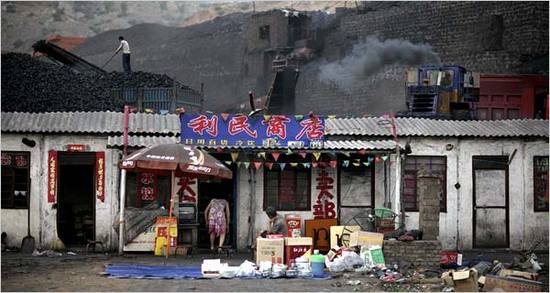
A worker pauses to shield his eyes while moving coal in Ningxia Province.
图中是宁夏的一个煤矿,一个工厂在铲煤途中停下脚步,护住眼睛,防止煤屑进入。
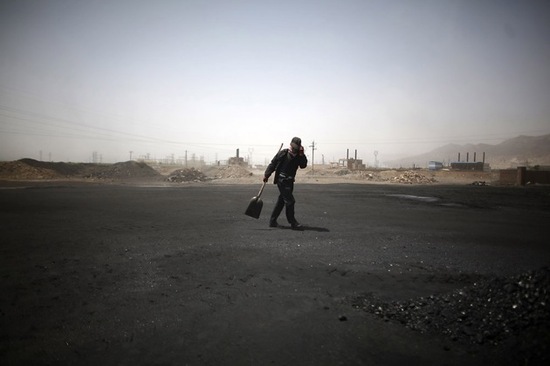
Smoke rises over a coal mine near Pingru in Shanxi Province.
山西省平鲁煤矿扬起漫天风尘。
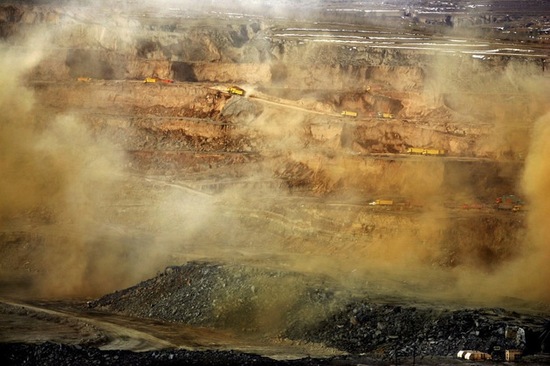
Water filled with coat dust at a coal company in Ningxia Province.
宁夏一个煤矿的周围河流已经完全变黑了。
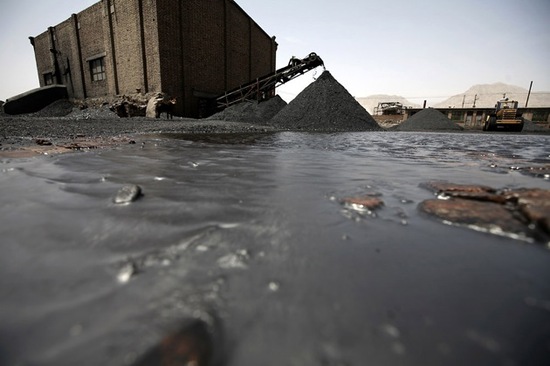
Migrant workers construct part of a bridge that will connect Ningxia and Inner Mongolia.
农民工正在为连接宁夏和内蒙的一座桥梁施工。
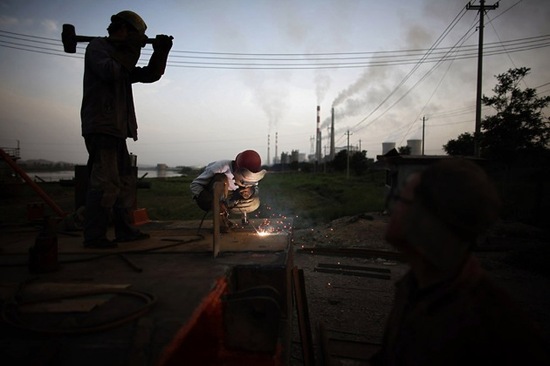
Construction in Bai Sha Town in Henan Province.
湖南省白沙镇的工地。
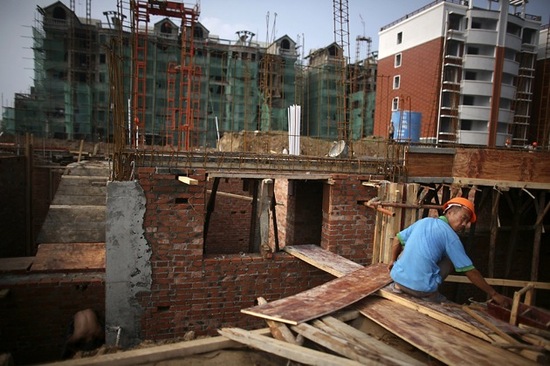
Construction for the 2008 Olympics in Beijing, where official are trying to reduce air pollution.
北京2008奥运会的工地。中国的政府官员们正试图减轻北京的空气污染。
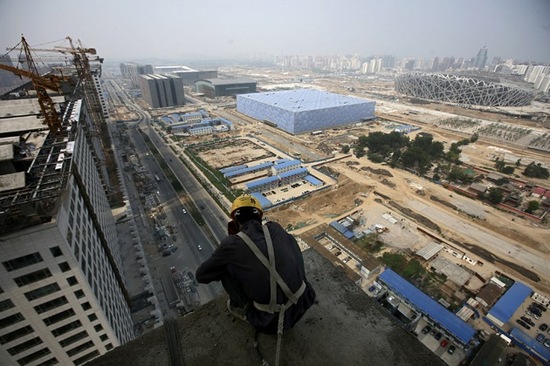
Traffic in Guangzhou. Expanding car ownership has played a major role in China's pollution problem.
图中是广州的交通状况。私人轿车的推广,是中国环境污染问题的一个重要原因。

Only 1 percent of China's 560 million urban dwellers breathes air considered safe by the European Union.
在中国5.6亿城镇居民中,只有1%的人可以呼吸到符合欧盟标准的安全空气。
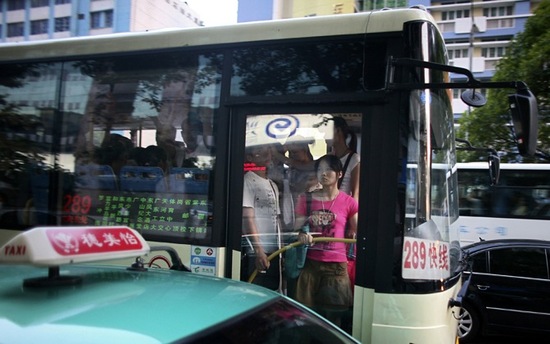
This family of migrants moved to Ningxia Province from Inner Mongolia so that the father could work at a nearby factory.
这个家庭从内蒙搬到宁夏,只为了家中的父亲可以在附近工厂找到一份工作。
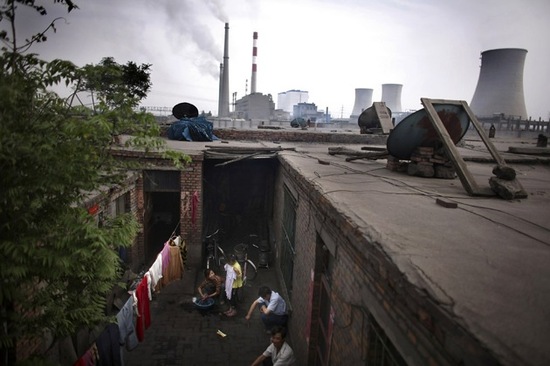
A cloud of exhaust at a coal-fired steel factory in Shanxi Province. At a facility like this, smoke of any color other than white is toxic.
山西省一个钢厂的烟囱正喷出滚滚浓烟。像这样的烟囱,除了白烟以外其他颜色的烟都是有毒的。
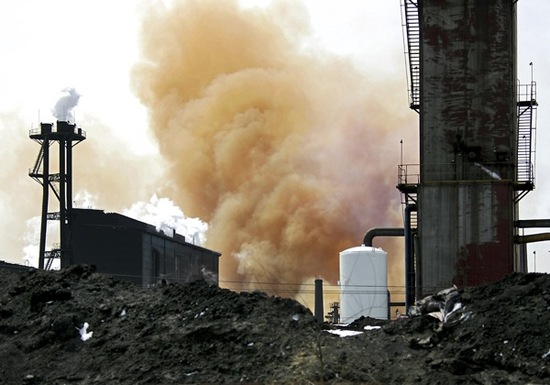
A worker moves bags of cement at a factory in Ningxia. China now produces half of the world's cement and flat glass.
宁夏的一个工厂中,工人正在运送水泥。目前,中国的水泥和平板玻璃的产量,已经占到了世界的一半。
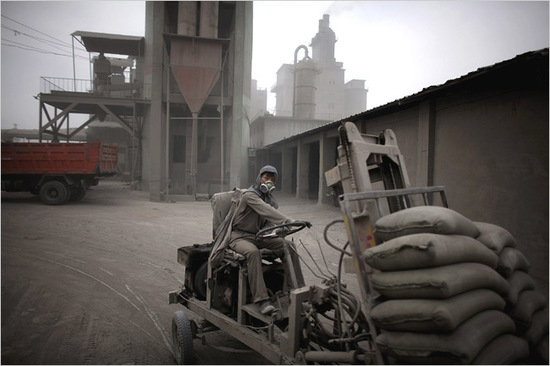
Workers at Shuizuishan Tianhe Ferroalloy Company produce a silicon steel alloy in Ningxia.
宁夏石嘴山天河铁合金有限公司正在生产硅钢。

Construction of a floating bridge will allow more traffic between Inner Mongolia and Ningxia's steel and power plants.
内蒙和宁夏交界处正在修建一座浮桥,这样宁夏的钢铁厂和内蒙的电厂之间就可以有更多的物资运输。
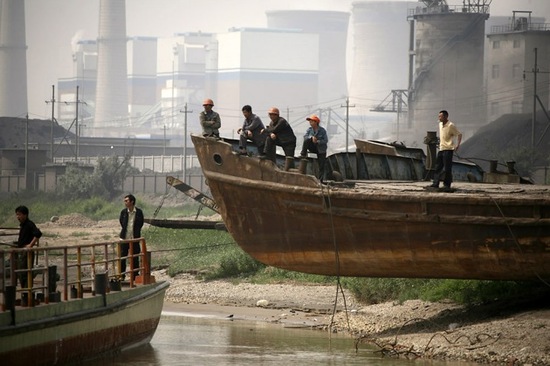
Pollution and algae blooms caused by runoff have poisoned China's lakes.
污染和水藻使得中国的湖泊变成有毒的地方。
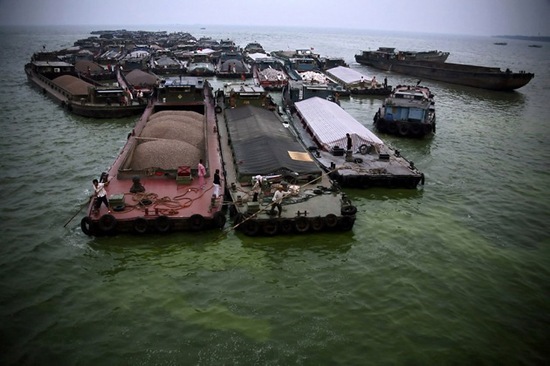
Boats wait to pass through Zhihugang Gate, which give them access to the Yangtze River.
船只正等待通过江苏省直湖港的船闸,进入长江。
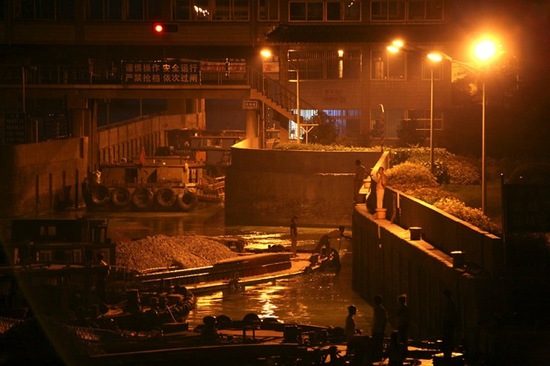
Mine workers move coal to be processed in Shenmu, which is one of the biggest coal-producing cities in China.
煤矿工人正在陕西神木市运煤,这是中国最大的产煤地之一。
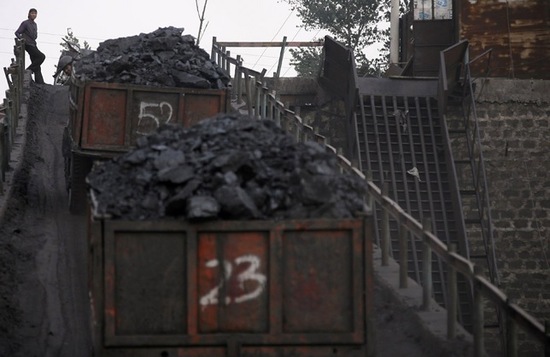
A man stands before a vast pile of coal at a mine near Shangmahuangtou, in Shanxi.
一个煤炭工人站在山西省上马黄头村附近的巨大煤堆前。

Piles of coal in Xiangcheng, in Henan Province, which will supply the area's power plant.
河南省项城市的煤堆,这里的煤主要供当地电厂使用。
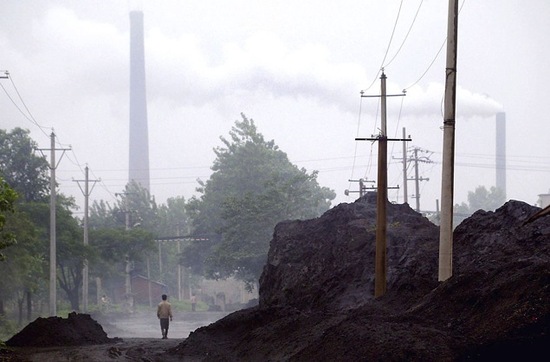
Trucks move in and out of the Wujiata coal mine in Shenmu. One of the largest mines in China, it operates 24 hours a day.
卡车在陕西省神木市吴家堡煤矿进进出出。这是中国最大的煤矿之一,一天24小时运作。
